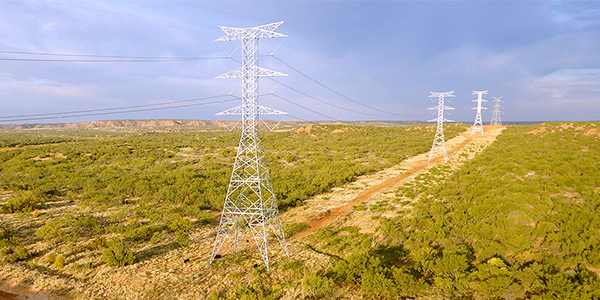By Tom Kleckner
Saying recent Texas legislation has rendered their case moot, Entergy, Southwestern Public Service and Texas Industrial Energy Consumers have asked to dismiss their appeal of a Public Utility Commission order negating an incumbent utility’s right of first refusal (03-18-00666-cv).
The parties told the Texas Third Court of Appeals in Austin on June 21 that Senate Bill 1938, passed in May, has “mooted the underlying controversy”: an appeal of a 2017 PUC ruling that SPS does not have the exclusive right to build transmission facilities in its service territory.
But Southwest Transmission and GridLiance High Plains asked the Texas court on June 27 to reject the motion to dismiss pending the resolution of a separate federal court challenge to the legislation.
The bill, which Gov. Greg Abbott signed on May 16, amended the Public Utility Regulatory Act to grant certificates of convenience and necessity (CCNs) to build, own or operate new transmission facilities that interconnect with existing facilities “only to the owner of that existing facility.” That essentially cuts out independent transmission companies from competing for projects anywhere in Texas, including for FERC Order 1000 projects in non-ERCOT areas. (See Texas ROFR Bill Passes, Awaits Governor’s Signature.)
In their filing, the parties said the Texas Legislature “has thus clarified that Texas law” gives SPS and Entergy “the exclusive right to build new transmission lines in their respective service territories.”
The parties also said the bill clarifies the Legislature’s intent to retain the state’s jurisdiction over retail rates in non-ERCOT areas of Texas “by effectively prohibiting the certification of new-entrant, transmission-only utilities whose rates would be subject to FERC’s exclusive jurisdiction.”
Because no transmission-only utilities currently operate in Texas’s non-ERCOT regions, the parties said, “the exclusivity provisions and limitations on transfers of certificate rights to utilities already certified within a particular power region will act as a bar to any future certification of such entities.”
Entergy, SPS and TIEC, a trade association of the state’s largest consumers, had appealed a Travis County District Court ruling that agreed with the PUC’s 2017 order (Docket 46901). The commission ruled that existing law did not give SPS a ROFR, and that it could award CCNs to transmission-only utilities in the state’s non-ERCOT regions. (See Texas Commission Rejects SPS ROFR Request.)
The PUC told the court June 27 that it was “unopposed” to the motion to dismiss.
But Southwest Transmission and GridLiance High Plains asked the court to consider staying the case pending NextEra Energy’s challenge of the constitutionality of SB 1938. (See NextEra Takes Texas to Court over ROFR Law.)
NextEra’s challenge, filed in the U.S. District Court for the Western District of Texas on June 17, alleges SB 1938 is unconstitutional because it violates the dormant Commerce Clause and the Contracts Clause.
“It is entirely possible that the federal district court may decide that the PURA provisions enacted under SB 1938 are, as alleged in NextEra’s lawsuit, unconstitutional and thus invalid and unenforceable,” the companies said. “A dismissal of the [Texas] appeal at this juncture, when NextEra’s lawsuit is pending, would potentially result in a still valid trial court judgment being vacated and the need for one or more of the parties to this case to refile and pursue a new, redundant appeal of the underlying PUC decision.”
NextEra transmission subsidiaries had won a competitive bid for a MISO 500-kV project in Southeast Texas and had a CCN application pending before the PUC to assume ownership of 138-kV facilities in Northeast Texas.






